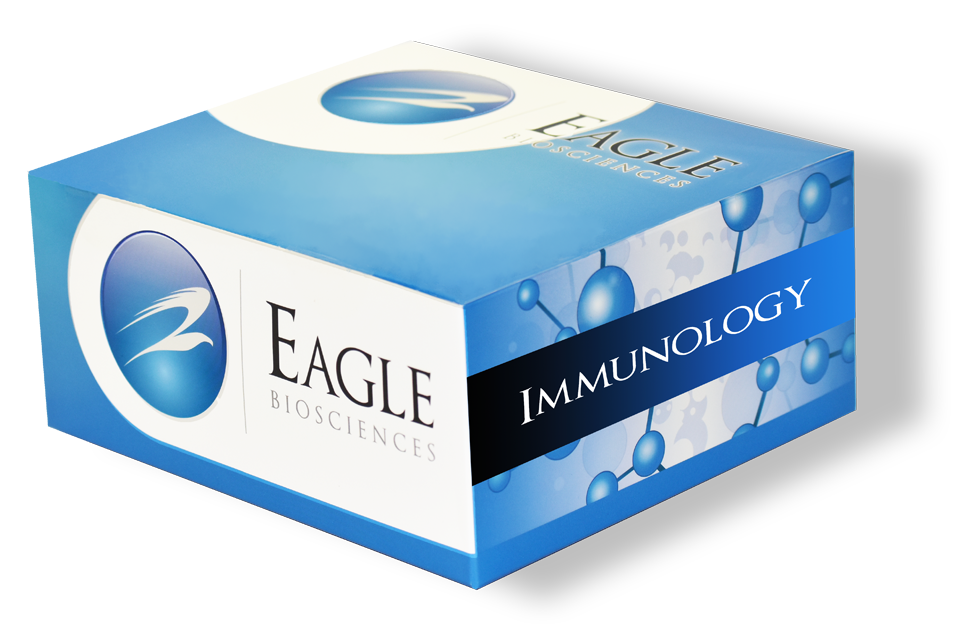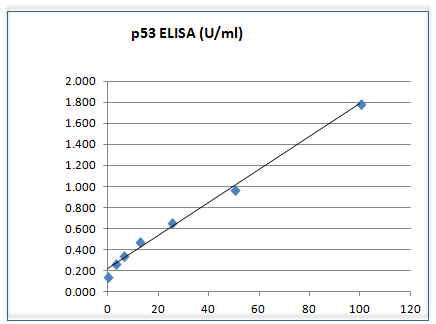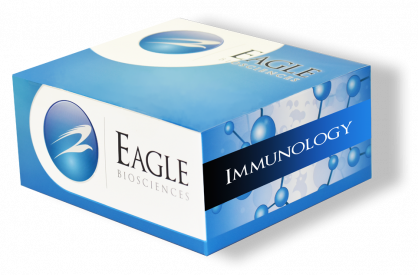Human p53 ELISA Assay
The Human p53 ELISA Assay is For Research Use Only
Size: 1×96 wells
Sensitivity: 1.5 U/ml
Dynamic Range: 3.1 U/mL – 100 U/ml
Incubation Time: 3h 45 min
Sample Type: Serum, Plasma, Cell Lysate
Sample Size: 100 µl
Specimen collection, processing & storage
Cell culture supernatants, serum, plasma or other biological samples will be suitable for use in the assay. Remove serum from the clot or red cells, respectively, as soon as possible after clotting and separation.
Cell culture supernatants:
Remove particulates and aggregates by spinning at approximately 1000 x g for 10 min.
Serum:
Avoid any unintentional stimulation of the cells by the procedure. Use pyrogen/endotoxin free collecting tubes. Serum should be removed rapidly and carefully from the red cells after clothing. For that, after clothing, centrifuge at approximately 1000 x g for 10 min and remove serum.
Plasma:
EDTA, citrate and heparin plasma can be assayed. Spin samples at 1000 x g for 30 min to remove particulates. Harvest plasma.
Storage:
If not analyzed shortly after collection, samples should be aliquoted (250-500μl) to avoid repeated freeze-thaw cycles and stored frozen at –70°C. Avoid multiple freeze-thaw cycles of frozen specimens.
Assay Principle
The p53 Kit is a solid phase sandwich Enzyme Linked-Immuno-Sorbent Assay (ELISA). A monoclonal antibody specific for p53 has been coated onto the wells of the microtiter strips provided. Samples, including standards of known p53 concentrations and unknowns are pipetted into these wells.
During the first incubation, the p53 antigen is added to wells. After washing, a biotinylated monoclonal antibody specific for p53 is incubated. Then the enzyme (streptavidin-peroxydase) is added. After incubation and washing to remove all unbound enzyme, a substrate solution which acts on the bound enzyme is added to induce a coloured reaction product. The intensity of this coloured product is directly proportional to the concentration of p53 present in the samples.
Related Products
Human CD21 ELISA Assay Kit
Human CD14 ELISA Assay Kit
Human CD116 ELISA Assay Kit



